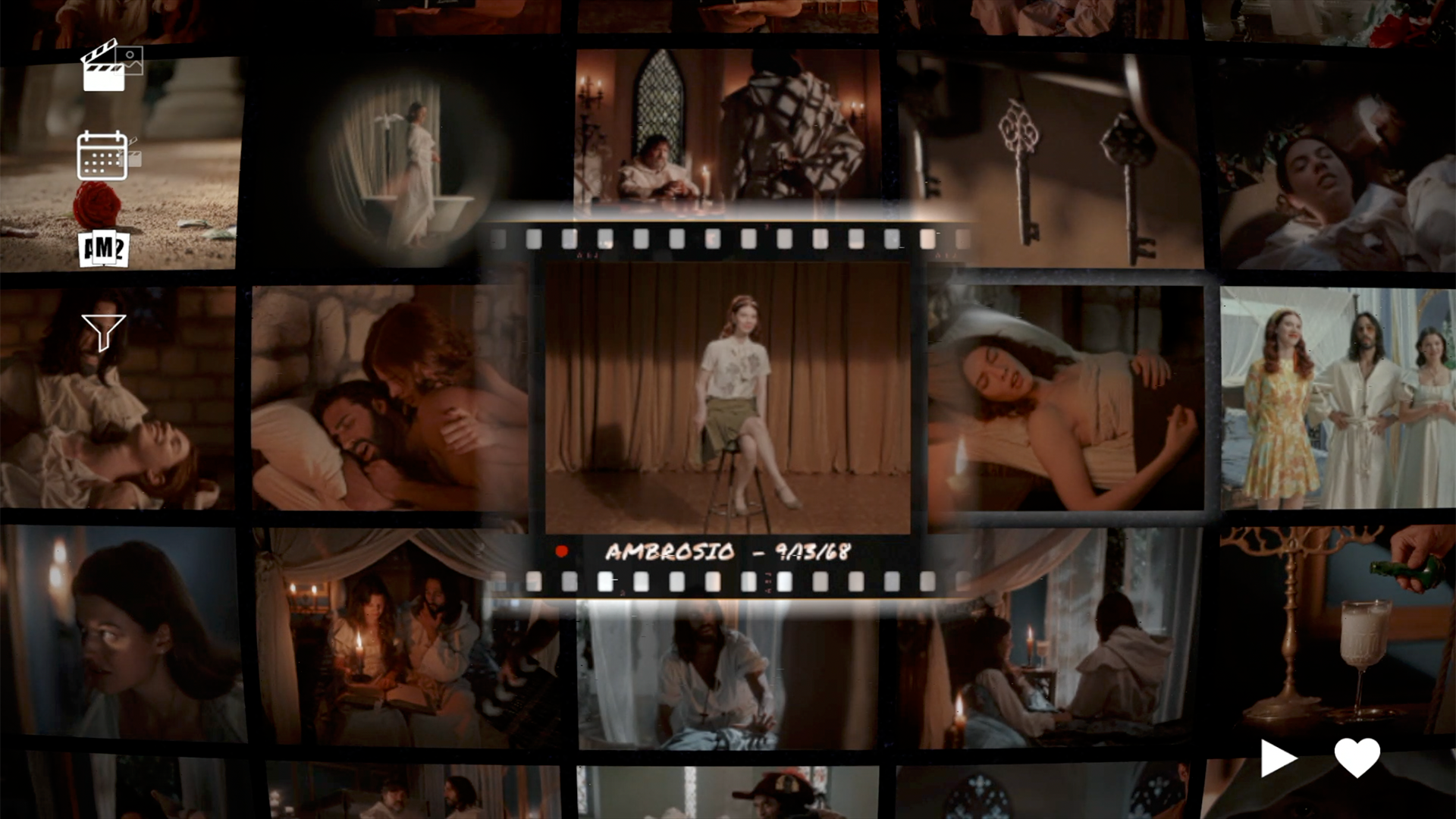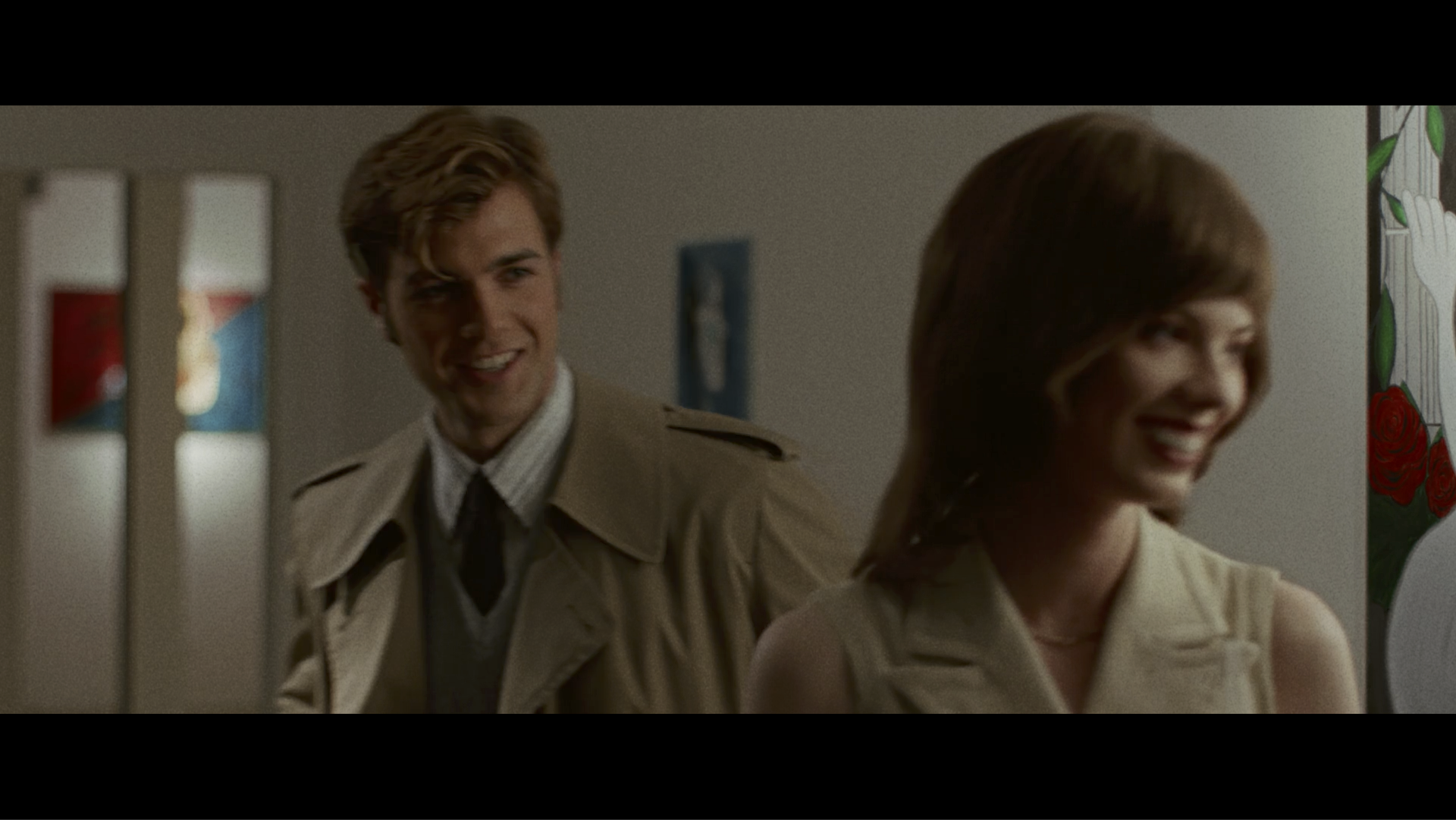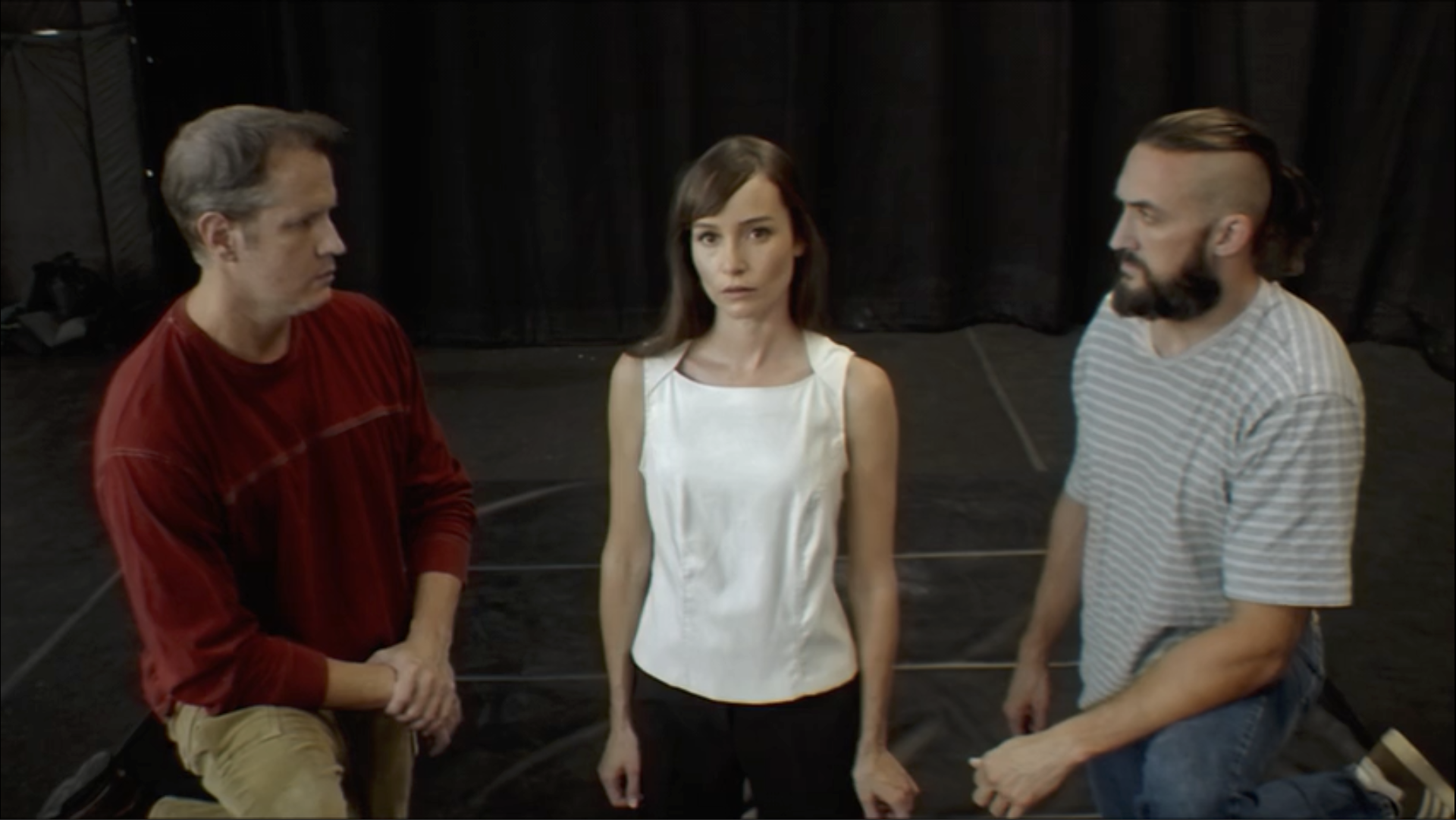There must be added pressure to create a particularly cool trailer when your game is both literally and figuratively about dissecting movies. I doubt that the additional anxiety fazed Sam Barlow much though, as chopping up clips is fertile and well-trod ground for the creator of Her Story and Telling Lies.
Barlow is the writer and director on Immortality, which again involves the player investigating archival footage to piece together the parts of a mystery. Immortality's evolutionary step over its predecessors is that it uses match cutting—think the spinning bone being replaced by a spaceship in Kubrick's 2001: A Space Odyssey—to enable players to jump between clips based on a shared visual similarity.
Immortality is billed as an interactive movie trilogy, with players sifting through footage from three 'lost' movies that all starred Marissa Marcel. The exact nature of the mystery remains, well, mysterious for now. But in the final trailer which debuted today at the PC Gaming Show, we can see how the match cutting mechanic works. As you might expect from a third swing at the genre, this promises to be Barlow's most lavish production yet, with collections of footage from 1968, 1970 and 1999 to explore.
When I sat down with Barlow over coffee in Brooklyn recently, he hinted that Immortality is hiding some strange stuff that isn't shown in the trailer, and as a horror movie fan my interest was definitely piqued.
Immortality also now has a release date. It's coming to Steam and Xbox Game Pass on July 26, so not long to wait now. Earlier this week I talked with Barlow over email to get some more detail on how Immortality's "editing" works and where it fits with his previous games.

PC Gamer: How does the match cut technique change up the way players tackle archival investigation versus what we experienced with Telling Lies and Her Story?
Sam Barlow: It all comes from the ideas. Her Story was about deconstructing the detective story and making you feel like a detective. Telling Lies was about deconstructing the political thriller and making you feel like you were performing surveillance. With Immortality, we want to deconstruct movies and moviemaking. The idea is to make you feel like you're in the edit suite, sorting through these lost movies, making discoveries. Like you're in the guts of the movie. In general we're trying to get you closer to the feel of a film before it's finished. And the match cut mechanic is about trying to capture the magic of the cut—the core magic of a movie—and put that in your hands.
The biggest gaming news, reviews and hardware deals
Keep up to date with the most important stories and the best deals, as picked by the PC Gamer team.
What I love about these games is that despite appearances, at their heart they are very gamey—the thing that drives them is allowing players to explore and express themselves. In the same way that Mario lets you express yourself through running and jumping, we're figuring out how to make the act of watching more expressive.
Perhaps magic has to feel slightly out of control for it to be magic.
—Sam Barlow
The match cut mechanic gives you the power of the director to say (over the shoulder of their editor) "cut here!" So it's very expressive and personal because you're able to cut off of anything, pick the frame, the object. But the other side to it, which is definitely a bit more progressive, is that this isn't a predictable thing. You say, "Cut off the apple!" and the game cuts off the apple but the game decides where to cut to, which other piece of fruit to jump to as the next part of the montage. There's this clever AI that's deciding what would be a good point to cut to.
So it's a bit like those party games where it's teamwork-based, and you're throwing your contribution in, but then the person you're playing with picks up the ball and runs with it. I'm always trying to capture a certain kind of magic in my games and I think here it's more fun because it's slightly out of your control. Perhaps magic has to feel slightly out of control for it to be magic.

Is it fair to say that Her Story, Telling Lies and Immortality effectively form a trilogy?
I am one of the few people in videogames to announce a trilogy and then deliver one! I am a big fan of ambitious structures and composition. So a big part of this one was the idea of telling a story through three stories—see the shifts in cinema around these pivotal periods, try and get under the skin of this actress through watching three of her movies. It's the insight you get if you're a cinephile and you go see some clever double bill, or you go to the arthouse cinema for a retrospective. Watch a Rita Hayworth triple bill—Gilda, Lady from Shanghai, Only Angels have Wings—are you getting closer to a sense of who Rita Hayworth was? I think that's similar to the other games.
If Her Story showed that digging into testimony with the scrutiny of a detective could bring the story to life more; if Telling Lies invited you to obsess over these people's lives like a police spy; here we're encouraging you to bring a cinephile's eye to this story and making that easy for you. All these games are about giving you license to be more obsessive than you might be otherwise. To be as obsessive as I am when I'm writing these things.
Does the thematic and stylistic through-line between these games effectively make you an auteur?
Be careful throwing the auteur word around! As much as I knew auteur theory was a critical tool, not a way of working, when I was answerable to bigger publishers I was happy to advocate for the recognition of auteurs—mostly because (a) the publishers generally liked to hide any real credit for the individuals who made stuff but mostly (b) the idea of an auteur leading a project was one of the few instances where someone was allowed to actually write, direct a game and have some control over its story and execution.
My thinking was: "This auteur thing is not really what people think it is, but if we can wave it around and get left alone to tell stories, maybe it's ok". That said, games absolutely need more authorial power. We need to elevate the writing and writers more. So if we focus on the 'author' aspect and not the 'boss who shouts a lot' aspects, I'm still happy to back the idea.
The stories I love in other mediums are always those where it feels the people making them didn't give a f**k what anyone thought.
—Sam Barlow
Games, in general, lack personal stories once you hit a certain scale of production. I love to play a game and feel like I'm plugging into someone else's brain in the way I often do when I read a book or watch a good movie. Part of the pitch to myself with Immortality was to run as far as possible in a direction that felt specifically and uniquely interesting to me. The stories I love in other mediums are always those where it feels the people making them didn't give a f**k what anyone thought—there's a fine line between that and self indulgence, but I think it generally gets you to more interesting places.
Big games can be as risk averse as event movies, so if I can do even the tiniest bit of work in swinging the dial towards d-g-a-f games, I'm happy to try. Luckily on this one I have a bunch of other authors helping out (Allan Scott, Amelia Gray, Barry Gifford), so we're really overflowing with authorial power and everyone was so excited by the novelty of writing for videogames that there were very few f**ks given.

With over two decades covering videogames, Tim has been there from the beginning. In his case, that meant playing Elite in 'co-op' on a BBC Micro (one player uses the movement keys, the other shoots) until his parents finally caved and bought an Amstrad CPC 6128. These days, when not steering the good ship PC Gamer, Tim spends his time complaining that all Priest mains in Hearthstone are degenerates and raiding in Destiny 2. He's almost certainly doing one of these right now.


